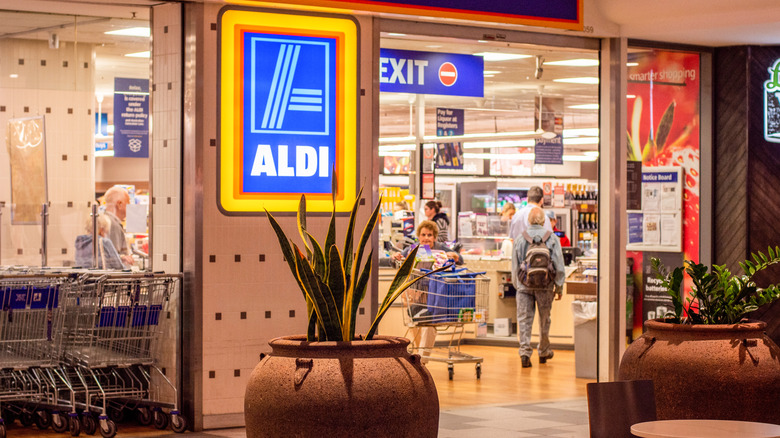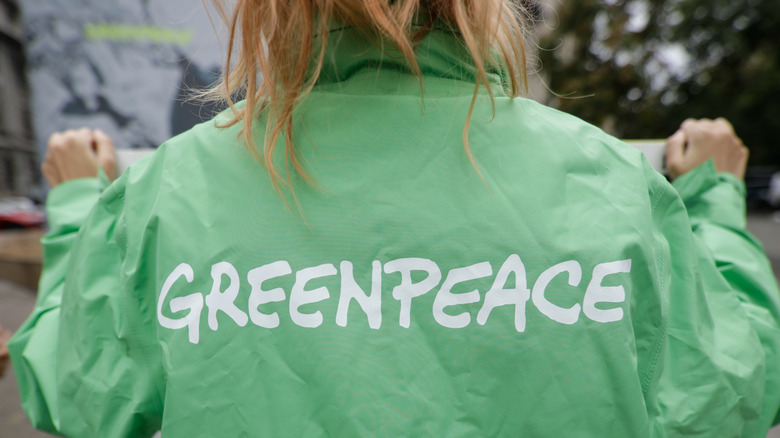How Aldi Australia Plans To Go Zero-Waste By 2025
In recent days, Aldi South — a division of the chain that covers stores in the United States, Australia, among other countries (via Aldi) — has been receiving praise for its sustainability goals.
On March 15, Meat+Poultry reported on Aldi's sustainability charter. Aldi pledged to reduce greenhouse gases by 26% by 2025 by increasing reliance on renewable energy, reduce packaging for products by 15% with a full conversion to recyclable or compostable materials by 2025, and reduce food waste by 50% by 2030. To do this it plans to increase food donations and waste collection in stores. "Aldi has a responsibility to protect the environment and we know it's an important priority for our customers," Jason Hart, Aldi US's CEO, said in a statement.
The news that Aldi hopes to send zero waste to landfill by 2025 has gained momentum. This lead Sussan Ley, Australia's Environment Minister, to recently tell Yahoo that "Aldi Australia's commitment to reducing waste and improving sustainable practices will hopefully have an immense flow-on effect across its supply chain, and through to consumers."
Greenpeace had a positive reaction
The best praise in the Yahoo article, however, comes from Greenpeace Australia Pacific's Lindsay Soutar: "Supermarkets are some of Australia's biggest and most complex businesses and having big retailers like Aldi take concrete steps on issues like waste and climate impact makes a huge difference." Now, what makes this praise notable isn't what was specifically said, but the fact that Greenpeace isn't always impressed by green initiatives from large companies. Recently, the environmental group wasn't a fan of Taco Bell's attempt to recycle its sauce packets.
The difference between the Taco Bell plan and Aldi's commitment is that even though Taco Bell declared in a press statement that its initiative would recycle the 8.2 billion packets of hot sauce Americans use annually, it did not address eliminating packet use altogether. Greenpeace made the point that Taco Bell could just as easily phase the packaging out in favor of customizing meals with hot sauce in-house. With its commitment to reducing food waste, however, Aldi is facing the understandable issue of having to supply its stores with food that may not be purchased. That makes its decision to curb food waste by donating unsold food to food banks a sounder method towards reaching sustainability than inventing a new method to reduce the footprint.

